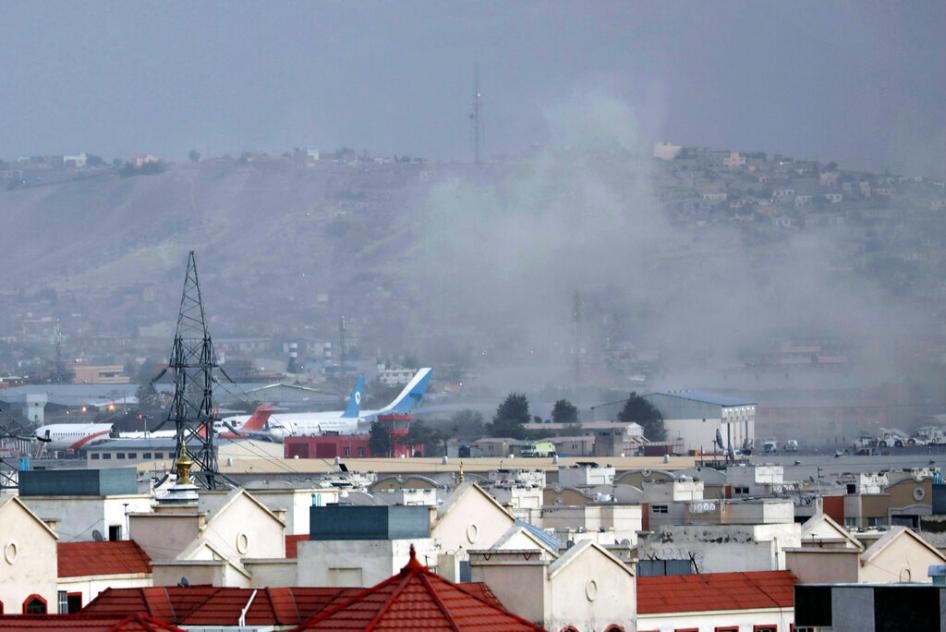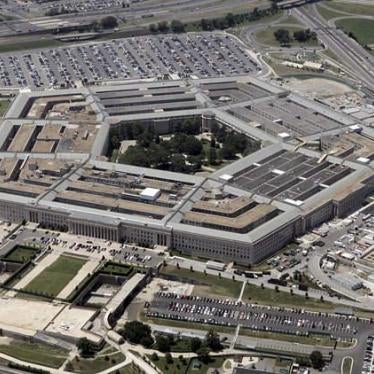U.S. military leaders held a press conference Friday to describe what happened last summer at the Kabul airport when a suicide bomber detonated during the US-led evacuation of Afghanistan. That day, 13 U.S. servicemembers and more than 150 Afghans were killed.
Equipped with a PowerPoint, a laser pointer, and videos of the attack, officials gave a second-by-second breakdown of events. The level of detail was impressive. Especially so because when it comes to other deaths in conflict – those of civilians harmed by U.S. operations – the US military has offered the opposite: immediate denials of harm and questionable investigations.
I have never seen an official Pentagon report on civilian casualties as detailed as the one I watched Friday. In the 20 years since the beginning of the U.S. global counterterrorism campaign, Human Rights Watch has investigated dozens of incidents of the U.S. killing civilians, and other organizations have documented many more. As far as we know, U.S. forces were held responsible in only one of them, when a Doctors Without Borders was hit in Kunduz, Afghanistan. Most of the time, mourning families received no acknowledgement of their loved one’s death and no explanation for why it happened.
The suicide bombing reviewed Friday was not the only mass casualty event in Kabul last summer. Fearing a second attack three days later, the US launched a missile at a car they thought was carrying explosives. But they got it wrong. After 19 days of insisting otherwise, the military announced that the targeted man, Zemari Ahmadi, had been a longtime worker for a California-based aid group. He was killed along with nine others including seven children. Three of his own children died.
To determine what happened, the U.S. military graded its own homework and found that, while “mistakes” were made, no one was at fault. No one will be held accountable. The family members still have not received any compensation nor have they been evacuated to a safe country.
Similar patterns have been repeated for years. An operation raises questions about civilian harm. The military immediately denies any such harm occurred. Reports of civilian casualties emerge. The Pentagon announces an investigation, and then finds no violations of the laws-of-war and no one responsible. After a spate of New York Times investigations in the fall showing significant negligence on the part of the Pentagon to look into civilian harm, Secretary of Defense Lloyd Austin in February pledged to “improve efforts to protect civilians.” That pledge is welcome but not enough.
Congress needs to step in. The Senate is holding a hearing next week on the legal and human costs of drone strikes. It should ask why, if the Pentagon is able to unravel an event like the Kabul airport suicide bombing to the minute, it cannot or will not do so for its own operations that kill civilians. Certainly there is a “moral imperative” to do so, at least in Secretary Austin’s own words. There is a strategic reason too, knowing as we do that civilian harm turns populations against the United States.
It's important that the U.S. military took such care to investigate the bombing in Kabul that killed U.S. servicemembers. Their families deserve that transparency and to understand how their loved ones were lost. It’s past time for the U.S. military to offer the same care when addressing civilian harm.









